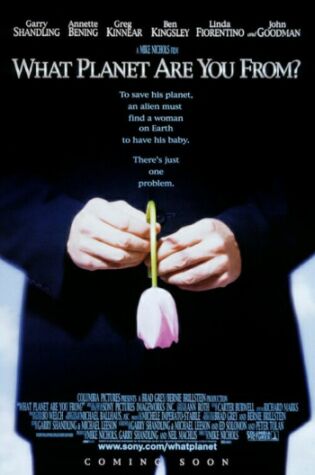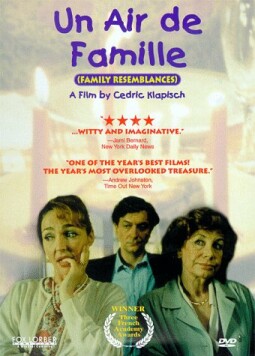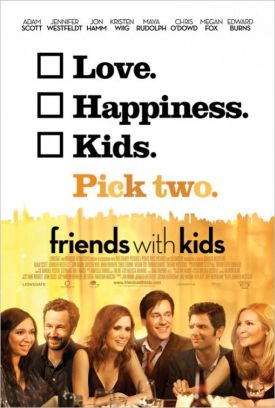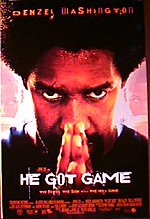Scream
Scream by Wes Craven seems already to have become a cult hit,
presumably because Wes is as knowing about the fright-film genre as his jaded
audience and likes to play with their expectations. At one memorable moment
while a crowd of teenagers are gathered to watch yet another horror film they
have all seen before, Randy (Jamie Kennedy), the video store clerk, explains to
the others “the
Rules” for getting out of a horror
film alive. “You can never have sex.
Sex equals death. . . You can never drink or do drugs. . .Never, never, never,
under any circumstances, say
‘I’ll
be right
back’.”
Well, it’s a new, postmodern approach
to horror (which everyone now seems to admit is now a subspecies of humor) which
works best where, as here, you have the hip kids commenting on horror film
conventions unaware of the horrors (that may or may not prove to be
conventional) happening all around them.
Of course postmodern horror has the added side benefit of making you forget
about how wildly implausible the plot is. As the plots of most horror films are
wildly implausible, this may seem a small thing, but it is rather paradoxical
that Craven’s satire of horror movie
conventions makes his own sins against verisimilitude less noticeable. For
example, the masked killer stalking the heroine, Sidney (Neve Campbell), lays
waste half the town, killing with a hunting knife and reckless abandon, but
somehow he can’t seem to get Sidney.
At first she seems to survive by defying the horror film conventions. An
interesting idea. But by the end she is just another kid in jeopardy whose
deliverance to or from the slasher will depend on similar if not identical
conventions.
Early on in the film, Sidney’s
boyfriend, Billy Loomis (Skeet Ulrich) is taken is as a suspect. When the young
cop, Dewey (Matthew Arquette) asks the chief if he thinks he did it, the chief
replies: “Twenty years ago,
I’d have said, not a chance. But these
kids today? Who knows?” There in a
nutshell is the premiss of the film. Horror films are really about outraged
innocence. But too many horror films (and too much leisure in which to watch
them) have drastically depleted the supply of innocence. Its natural possessors,
children, are knowing and jaded earlier and earlier in life, to the point where
there is no more innocence to outrage.
These are kids who seem to do nothing but watch videos or Ricki Lake, and
when their school principal (Henry Winkler) fulminates about how
“you and your whole whoring, thieving
generation disgust me,” he only marks
himself out as an obvious suspect. As one high school pupil says to another,
“You can only hear that Richard
Gere-gerbil story so many times before
you’ve got to start believing
it.” Everything is true, so nothing
is. Instead, it’s all a performance.
Sidney keeps imagining the film that will be made of her life, which she wants
Meg Ryan to star in. Billy keeps referring to specific episodes in the horror
movies he watches. “But this is life;
it isn’t a
movie,” says Sidney to him at one
point.
“Sure it is.
It’s all a movie. One great big
movie.”
Later, when the killer is unmasked and also has obviously
“seen too many
movies” he objects:
“Don’t
blame the movies. Movies don’t create
psychos. They just make them more
creative.” Doubtful as that
proposition may be in general, it sounds a little more convincing — if
that’s of any comfort to
you — when applied to Scream.
Discover more from James Bowman
Subscribe to get the latest posts to your email.








